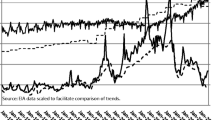Abstract
The emphasis of policy needs to change from greater energy efficiency to energy conservation and carbon saving. This reflects the progress that has been made in identifying the opportunities for improved energy efficiency and the accompanying failure to reduce total energy consumption. The focus on carbon dioxide would align energy policies with climate change targets more precisely.The debate increasingly needs to incorporate the role of fuel-switching at the household level and the contribution that can make in achieving carbon savings. This paper will examine the issues involved in these debates and specifically:the labelling of gas and electric appliances;the market transformation of systems, rather than products;the interplay with supply-side policies (extent of the gas network); household carbon targets, both for suppliers and for consumers;promotion of household-level renewable energy supply (e.g., solar thermal).The widespread understanding of appliance energy use developed in Europe must be placed in this wider context as a contribution towards future sustainability.
The debate increasingly needs to incorporate the role of fuel-switching at the household level and the contribution that can make in achieving carbon savings. This paper will examine the issues involved in these debates and specifically:
-
the labelling of gas and electric appliances;
-
the market transformation of systems, rather than products;
-
the interplay with supply-side policies (extent of the gas network);
-
household carbon targets, both for suppliers and for consumers;
-
promotion of household-level renewable energy supply (e.g., solar thermal).
The widespread understanding of appliance energy use developed in Europe must be placed in this wider context as a contribution towards future sustainability.
Access this chapter
Tax calculation will be finalised at checkout
Purchases are for personal use only
Preview
Unable to display preview. Download preview PDF.
Similar content being viewed by others
References
Boardman, B. (1991) Fuel Poverty. Bellhaven Press, London.
Fawcett, T., K. Lane, B. Boardman et al. (2000) Lower Carbon Futures. Environmental Change Institute, University of Oxford.
Griffin, H. and T. Fawcett. (2000) Country Pictures, supporting document for Lower Carbon Futures. Environmental Change Institute, University of Oxford.
Kasanen, P. (1999) EU domestic ovens, SAVE study. TTS, Finland.
Author information
Authors and Affiliations
Editor information
Editors and Affiliations
Rights and permissions
Copyright information
© 2001 Springer-Verlag Berlin Heidelberg
About this paper
Cite this paper
Boardman, B. (2001). Creating a Carbon Market. In: Bertoldi, P., Ricci, A., de Almeida, A. (eds) Energy Efficiency in Household Appliances and Lighting. Springer, Berlin, Heidelberg. https://doi.org/10.1007/978-3-642-56531-1_87
Download citation
DOI: https://doi.org/10.1007/978-3-642-56531-1_87
Publisher Name: Springer, Berlin, Heidelberg
Print ISBN: 978-3-540-41482-7
Online ISBN: 978-3-642-56531-1
eBook Packages: Springer Book Archive




